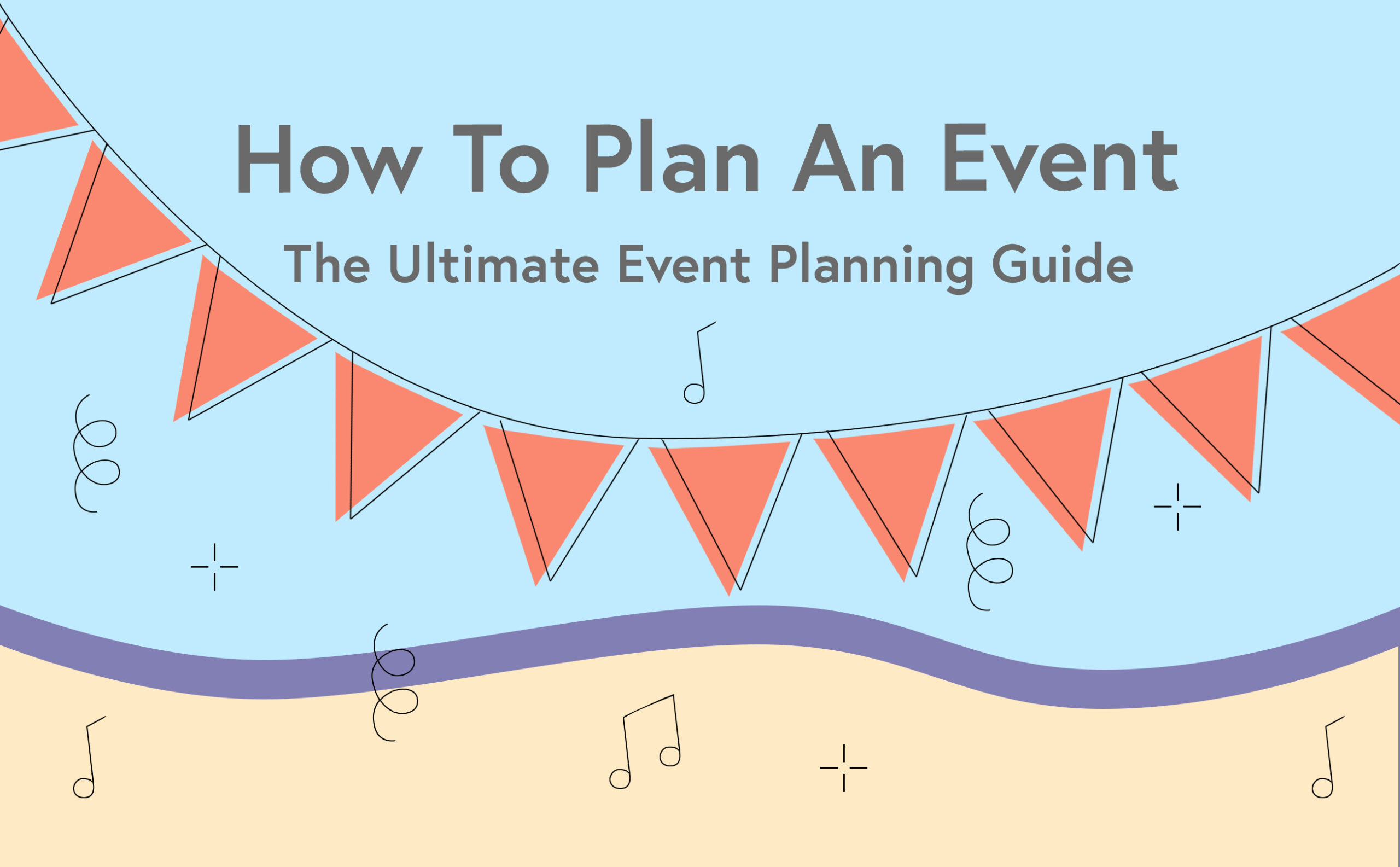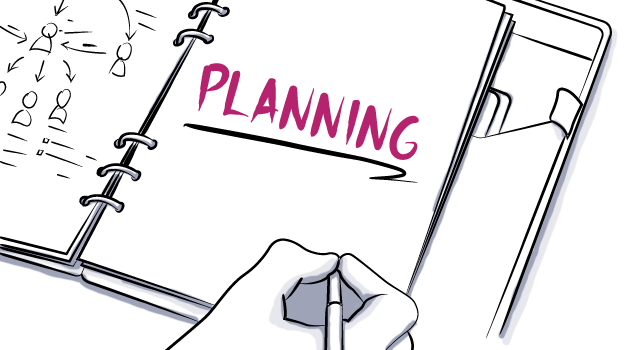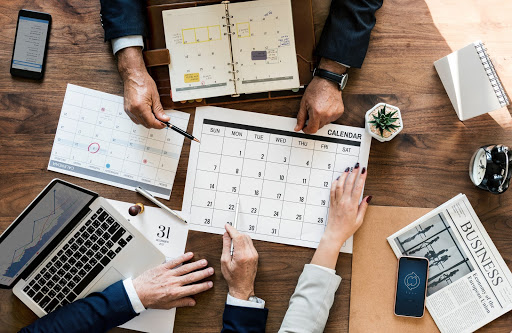The differences of event planning companies charlotte nc compared to DIY planning
Unlocking the Keys of Effective Event Planning for Memorable Experiences
Effective event planning needs a tactical strategy that goes beyond plain logistics. It entails a careful consideration of goals, target market, and motifs. Organizers have to concentrate on developing customized experiences that engage guests and foster connections. The course to achieving unforgettable events is commonly filled up with difficulties. Recognizing the subtleties of efficient planning can reveal the possibility for really impactful gatherings. What are the crucial elements that make an occasion memorable?
Defining Your Event Goals and Objectives
Clarity is important when defining event goals and goals, as it sets the structure for a successful planning process. By verbalizing particular goals, event planners can produce a clear instructions and assurance that all efforts line up with the desired outcomes. Objectives should be measurable and possible, making it possible for organizers to track progress and assess success efficiently.
Identifying the overarching objective of the event, whether it is to inform, amuse, or promote, plays a substantial role in shaping each decision made throughout the drawing board. Stakeholders have to be included in this initial definition stage to collect varied viewpoints and foster a feeling of ownership.

Understanding Your Target market
Recognizing the audience is essential for reliable event planning. This includes identifying target demographics and evaluating their preferences to tailor the event experience. By getting understanding into the audience's interests and characteristics, organizers can produce a lot more appropriate and engaging events.
Determining Target Demographics
How can event organizers assure their gatherings reverberate with participants? Identifying target demographics is essential for crafting remarkable experiences - event planning companies charlotte nc. Effective organizers start by performing thorough study to understand the age, rate of interests, and preferences of their audience. This includes studying elements such as geographical area, cultural histories, and socioeconomic condition. By segmenting possible guests right into distinctive groups, organizers can customize event components, including motifs, tasks, and areas, to line up with certain demographic attributes. Involving with prospective guests through surveys or social media sites can provide useful insights into their assumptions. Ultimately, this targeted technique enables event organizers to produce tailored experiences that promote connection and interaction, ensuring that events not only meet but go beyond the wishes of their audience
Assessing Target Market Preferences
Once target demographics are determined, the following action involves examining audience choices to produce a truly interesting event experience. Comprehending what resonates with the audience is important for customizing web content, tasks, and overall environment. This procedure can be attained through surveys, social media sites understandings, and past event feedback, which supply useful data on expectations, passions, and preferences. Event organizers ought to concentrate on crucial aspects such as recommended motifs, potential speakers, and wanted networking opportunities. Additionally, watching on arising trends can assist in anticipating audience needs. By leveraging this information, coordinators can create occasions that not just bring in participants however additionally urge active participation, guaranteeing a memorable experience that aligns with audience desires.
Crafting an Unique Motif and Atmosphere
To produce a memorable event, planners must first specify the event's objective, as this foundational action shapes the general experience. Aesthetic communication plays a crucial function in developing a theme that reverberates with guests, making each component of the style job sympathetically. Involving all detects further improves the environment, guaranteeing that guests have an immersive experience that remains long after the event wraps up.
Specifying Your Event's Function
While numerous event planners concentrate on logistics and visitor lists, specifying the event's function is necessary for crafting an unique theme and environment. Developing a clear objective enables planners to align all components of the event, from decor to tasks, with a natural vision. This quality assists in choosing a style that reverberates with participants, guaranteeing that the experience is both unforgettable and interesting. For instance, a corporate hideaway may stress team effort and technology, while a wedding event could concentrate on love and event. By attentively considering the event's intent, organizers can develop an environment that not just captures the significance of the occasion yet also fosters meaningful connections among guests, boosting the total experience.
Producing Aesthetic Communication
Creating aesthetic cohesion is crucial for changing an occasion into a remarkable experience, as it unifies different components under a single, engaging theme. This process begins with a clear vision that overviews the option of colors, design, and materials. Each component must reflect the overarching theme, whether it be a rustic wedding or a corporate gala. Focus to detail, such as matching table settings and signs, enhances this unity. Lights plays a crucial function, boosting the ambience and highlighting vital locations. In addition, incorporating consistent branding elements, such as logo designs and taglines, strengthens the theme while developing a professional touch. Eventually, aesthetic cohesion not just mesmerizes guests but additionally fosters a sense of belonging and involvement throughout the event.
Engaging All Senses
Engaging see here now all detects is important for crafting an one-of-a-kind theme and environment that reverberates with participants. Successful event coordinators acknowledge that including aesthetic, auditory, olfactory, tactile, and gustatory components creates an alternative experience. Thoughtful decor establishes the visual tone, while thoroughly curated songs includes an auditory layer, enhancing the psychological atmosphere. Scents, whether from flower setups or food terminals, stimulate memories and boost discussion. Tactile experiences, such as interactive installations or textured materials, invite guests to engage physically with the setting. Providing one-of-a-kind food and drink selections can entice taste buds, leaving a long-term perception. By considering each sense, event organizers can create remarkable experiences that deeply get in touch with participants, ensuring that the event continues to be memorable long after it concludes.
Managing Logistics and Budgeting
Efficient event planning hinges on the careful management of logistics and budgeting, as these components are basic for making sure a smooth experience. An effective event calls for meticulous attention to detail in working with transport, venue option, and necessary tools. Coordinators should examine the requirements of the event and produce a detailed checklist to handle timelines effectively.
Budgeting plays a considerable function in identifying the scope of the event. It entails not only alloting funds for each and every facet yet additionally preparing for potential costs and establishing apart backups. By prioritizing costs, planners can make informed choices on where to spend, whether in one-of-a-kind locations or top notch suppliers.

Engaging Guests Throughout the Event
Exactly how can event planners guarantee that guests remain mesmerized and entailed throughout the period of an event? Involving visitors needs a thoughtful mix of interactive components, home entertainment, and individual connections. Efficient event organizers incorporate tasks that encourage participation, such as real-time surveys, Q&A sessions, or hands-on workshops.
Additionally, producing a lively environment with music, aesthetic displays, or themed design can enhance the general experience. Providing chances for networking and social interaction cultivates links among guests, making them feel a lot more bought the event.
Strategic usage of innovation, like event apps or social media assimilation, can keep visitors notified and involved. Planning surprise elements, such as visitor speakers or enjoyment intermissions, can also capture attention and keep interest. Ultimately, the essential hinge on balancing framework with spontaneity, making certain that guests feel both involved and entertained throughout the event.
Examining Success and Gathering Responses
What techniques can event organizers employ to analyze the success of their celebrations and gather useful feedback? Organizers frequently make use of questionnaires and surveys distributed shortly after the event to catch participants' impacts. These devices can be tailored to assess complete satisfaction degrees pertaining to numerous aspects, such as venue, audio speakers, and total experience.
Additionally, planners might conduct meetings or focus groups with select individuals for more in-depth insights. Social network tracking also offers a read the article real-time snapshot of participants' views, as visitors typically share their experiences online.
Assessing presence numbers and involvement metrics can better highlight locations of success Related Site and those requiring improvement. Examining the event's objectives versus real outcomes allows organizers to recognize successes and spaces, educating future events. By employing a mix of these methods, event organizers can collect extensive comments to boost future celebrations.

Frequently Asked Inquiries
Exactly how Do I Choose the Right Location for My Event?
Picking the ideal place involves reviewing capacity, place, ease of access, features, and setting. Additionally, taking into consideration budget plan constraints and the event's purpose assures an ideal setting that fulfills attendees' needs and enhances the general experience.
What Should I Consist of in an Occasion Planning Timeline?
An occasion planning timeline ought to consist of vital turning points, target dates for vendor bookings, budget plan assessments, venue confirmations, advertising routines, staffing arrangements, and a checklist for day-of logistics to ensure a smooth execution of the event.
Just How Can I Properly Advertise My Event?
To properly advertise an occasion, one ought to utilize social networks systems, engage regional influencers, develop captivating visuals, use early bird tickets, and preserve constant interaction through newsletters and targeted promotions to get to a more comprehensive audience.
What Are Some Tips for Handling Last-Minute Modifications?
To take care of final changes successfully, one ought to preserve clear interaction with all stakeholders, focus on tasks, stay flexible, and have contingency strategies all set (event planning companies charlotte nc). Flexibility and a tranquil behavior can considerably decrease stress throughout unexpected circumstances
How Do I Take Care Of Difficult Visitors Throughout the Event?

To produce an unforgettable event, organizers have to first specify the event's purpose, as this fundamental step shapes the overall experience. While several event coordinators focus on logistics and visitor checklists, specifying the event's function is essential for crafting a distinct style and environment. Successful event planners identify that integrating visual, acoustic, olfactory, tactile, and gustatory elements creates an all natural experience. Just how can event organizers ensure that guests continue to be astounded and involved throughout the duration of an occasion? Evaluating the event's objectives versus real end results enables organizers to determine successes and gaps, notifying future occasions.